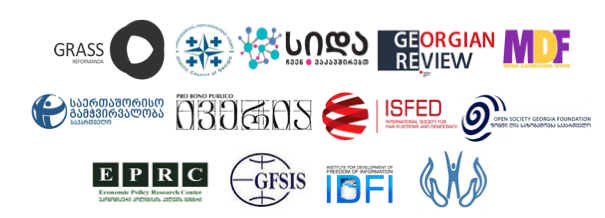


 On the 10th of July 2015, near the village of Orchosani and the territory of Tsitelubani-Khurvaleti, Russian occupation forces shifted the border of South Ossetia by several hundred meters into Georgian-controlled territory, alarming Georgia’s security. This action is a logical sequence of Russia’s annexation policy, which frameworks the so-called Integration and Partnership Agreements which were recently signed with Abkhazia and South Ossetia. Accordingly, it means that Moscow continues to seize Georgian territories and instill fear in the civilian population. This time, strategic infrastructure, the Baku-Supsa pipeline, was threatened. In the near future, the Kartli-2 power line and, most importantly, the Central Georgian Highway, might be threatened in a similar way.
On the 10th of July 2015, near the village of Orchosani and the territory of Tsitelubani-Khurvaleti, Russian occupation forces shifted the border of South Ossetia by several hundred meters into Georgian-controlled territory, alarming Georgia’s security. This action is a logical sequence of Russia’s annexation policy, which frameworks the so-called Integration and Partnership Agreements which were recently signed with Abkhazia and South Ossetia. Accordingly, it means that Moscow continues to seize Georgian territories and instill fear in the civilian population. This time, strategic infrastructure, the Baku-Supsa pipeline, was threatened. In the near future, the Kartli-2 power line and, most importantly, the Central Georgian Highway, might be threatened in a similar way.
We believe that under these circumstances there is a need for emergency measures. It is crucial to fundamentally revise the strategy of relations with Russia. No measure will be successful without this step. The main principle of our strategy is to continue relations with Russia with the engagement and participation of the international community.
We propose several measures that we believe the Government of Georgia should immediately take to counter the existing threat.
From our side, we are ready to maximally contribute to the protection of the rights of the people affected by the shift of the occupation line, as well as contribute to the communication with society concerning Georgia’s national security issues.
Finally, we call on the government to immediately arrange a meeting with non-governmental organizations (in the framework of the security and crisis management council) to discuss Georgia’s contemporary security challenges with the participation of civil society representatives.
Georgia’s Reforms Associates (GRASS)
Atlantic Council of Georgia
Civil Development Agency (CIDA)
Georgianreview.ge
Media Development Fund (MDF)
Transparency International Georgia (TI)
Georgian Institute for Strategic Studies (GISS)
Public Movement Iveria
Georgian Democracy Initiative
International Society for Fair Elections and Democracy (ISFED)
Open Society Georgia Foundation (OSGF)
Economic Policy Research Center (EPRC)
Georgian Foundation for Strategic and International Studies (GFSIS)
Institute for Development of Freedom of Information (IDFI)
Media Club
Article 42 of the Constitution
Baltic to Black Sea Alliance Georgia (BBSAG)
Mother of Soldier